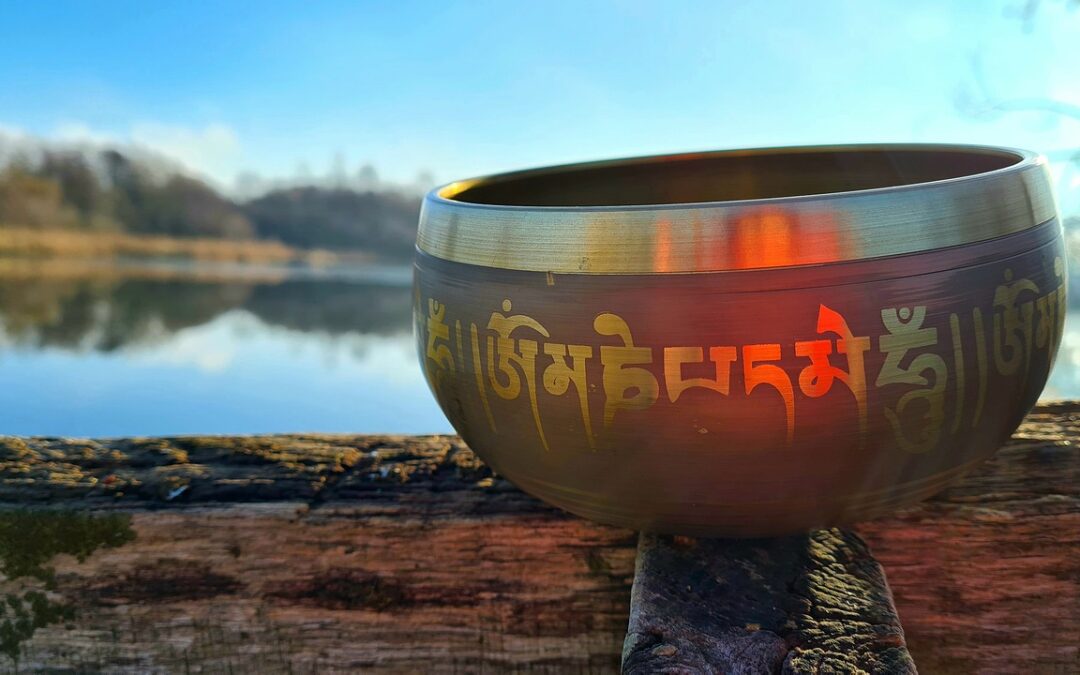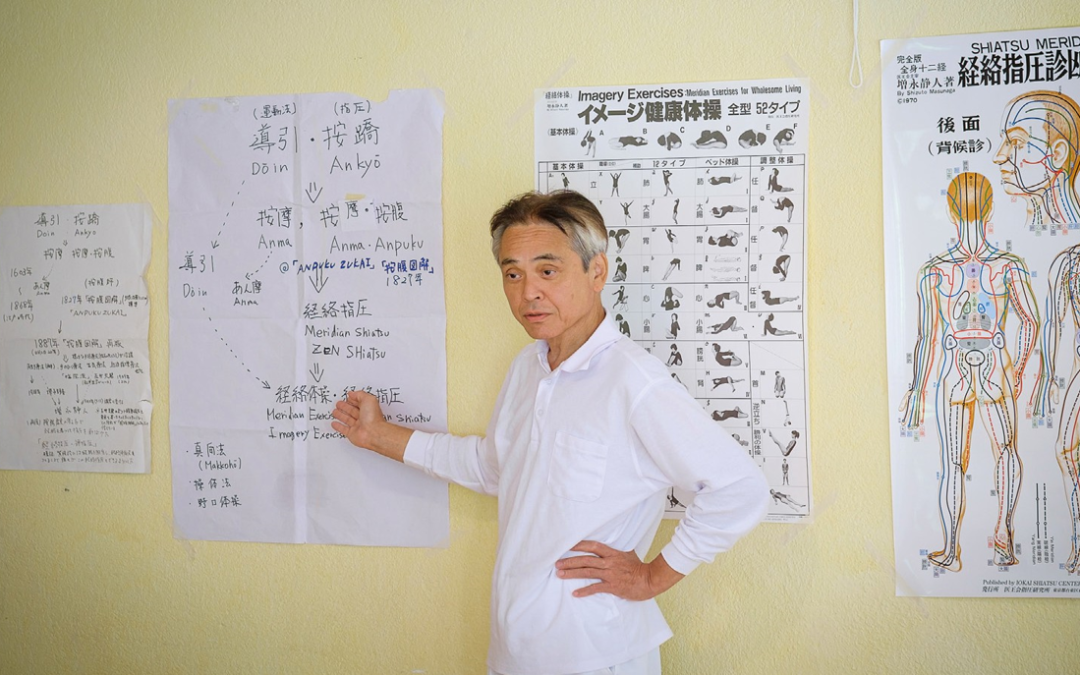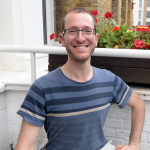
Tal Badihi! Remember this name, because he is one of those who is rising in the international Shiatsu panorama. Tal is an Israelian shiatsu practitioner (now based in London) who specialized in autism treatment. From the outset it will be recognized that it takes passion to tackle such a subject. His experience in the field is now recognized and he participates in conferences and seminars more and more. Let’s meet a passionate researcher about Shiatsu.
Translated by : Barbara Morandi
Ivan Bel: Dear Tal, you are unknown to a large number of European shiatsu practitioners, that’s because you are from Jerusalem (Israel) and you are not one of those international teachers that we meet pretty much everywhere. So could you introduce yourself?
Tal Badihi: Yes of course, thank you for inviting me for this interview. Here some info about myself and how I came to study Shiatsu therapy. I grew up in Israel in a small village close to Jerusalem. I have always loved being outdoors, in the wild and I hiked a lot across the country. Since childhood I have been also passionate about biology and I got into the habit of reading books on human body, animals and plants. For a while, I practiced Karate, this martial art was my first contact with Japanese culture.
When I finished my graduate studies, I moved to a small village in the desert, where I’ve been a volunteer worker for an year and a half. I mainly harvested dates, worked in a stable and carpentry. There I met for the first time a Chinese medicine practitioner, who remained a good friend until now. We had lots of conversations about health and I was getting more and more interested in Eastern philosophies and their vision of the human body. It was also at that time that I started practicing Taichi. These new ideas, combined with my experience in martial arts, made me decide to study oriental medicine (at that time I thought Chinese medicine and Shiatsu were more or less the same thing)
When did you really discover Shiatsu? Why did you choose to study it and how long did it take?
At the beginning I would study Shiatsu because I was fashinated by the idea of ”treating” through the touch only, but as soon as I discovered Chinese medicine, the complexity and the detailed theories that support Shiatsu, I decided to learn on this subject in depth. I attended a full-time program for 4 years at the Hebrew University. This training included acupuncture, herbalism and it was my chance, Shiatsu! It is common in Israel to study Shiatsu or Tuina with Chinese acupuncture and plants.
I am very glad for the way things gone, because I had the opportunity to learn with a great teacher and to discover how much I love both Shiatsu and Chinese Medicine.
Who was your teacher? What memories do you keep about him/her?
My teacher was Mrs Galit Shaviv who is an experienced practitioner and teacher, who lives in Israel. She teaches at the Hebrew University and in a school in Finland. Mrs Galit is a wonderful and passionate person. It was really a pleasure to study under her direction. I remember that at the end of the first lesson I felt like I’ve found what I’ve been looking for a long time, due to the attention to someone else body and to the intention I felt like at home, a place of care and development. Mrs Galit also emphasized meditation and different states of consciousness as part of the therapeutic work, that was a new concept for me.
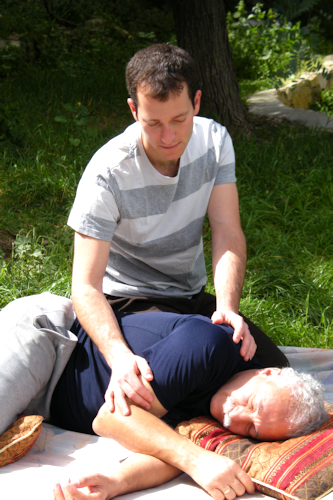
What did Shiatsu bring about you at the end?
Shiatsu is a gift. It is both a practice that helps me exploring myself and a tool that I can use for good. When I say “explore”, I mean my body, my mind, how things move and change inside me and how they reveal outside.
Shiatsu helps me balance myself, it is a way of self-healing. Often when I finish a treatment, I feel the energy and the light, it’s fantastic.
Can you clarify us the situation of Shiatsu in Israel? Is this therapy recognized or accepted?
Shiatsu is very well known in Israel and it’s practiced in private clinics as well as in public health system. There is no kind of government regulation on alternative medicine. It is therefore a work in progress and for the moment the professional associations are in charge of creating regulations for training, practice and development. Shiatsu is managed by the Israeli Shiatsu Association.
At some point you’ve been interested in people with autism. How it happened?
I have been very lucky. I was invited to a care home for adults with severe autism in Jerusalem. The manager of this institution had already learnt by several Shiatsu experiences and he was sure that it could help people who were there. Today I realize that this invitation was a turning point in my life, a turning point that introduced me to autism disorders and made me meet many adorable, fascinating and difficult patients too. For several years I worked in two specialized institutions in Jerusalem, since I moved to London where I work in a day service where I meet patients weekly.
Which were your first experiences with autistic people and how Shiatsu can help them?
At first I was very frustrated. When I started with these patients my knowledge of autism was poor. The main neurological differences between autistic and “normal” patients (the correct term is “neurotypical”) make it almost impossible to practice Shiatsu in the way I learnt (with a patient lying down on a mattress for a whole session). There are many differences that need to be considered and Shiatsu practice must be flexible, creative and full of patience to simply achieve patient participation and reach good results.
Besides, many of my autistic patients were subject to anxiety and extreme emotions, their Qi could easily affect me. I could feel tired, depressed or feel pain after a treatment and it took me quite a while to learn not to be overwhelmed by the Qi of my patients.
Regarding the benefits that Shiatsu can bring, they are the same we see everywhere, but with various extras specific to autistics:
- Relief of anxiety, which is known in autism, is very important. Quite often, autistic patients suffer from abrupt phases of depression and violent behaviors as result of a feeling of losing control over their environment. They can be overwhelmed by sensorial stimulation or the intentions and expectations of other people. After Shiatsu session, my patients are in a better mood, there are fewer psychological breakdowns and incidents where they intentionally harm themselves.
- Constipation is a chronic condition in people with autism, and it is very common for them to have digestion problems or eating disorders. Incidentally, and it’s very interesting, the latest research has shown a connection between certain abnormalities in the gut microbiosm and autism. And as you already know, Shiatsu is excellent for treating constipation
- Many autistic people have poor proprioception too, this means a poor perception of their body and the place of their limbs in space, which generates poor posture. Shiatsu can help them by refocusing them and creating a sense of body unity. Opportunity to stretch and relax contracted muscles is obviously a great benefit as well.
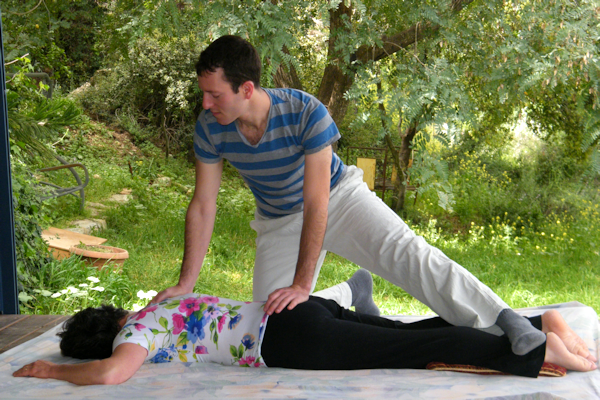
Most people with autism avoid being touched by others, probably due to their lack of sensory regulation. Some do not allow them to be touched at all. I am fully confident that a shiatsu session can benefit all of these patients, but it takes patience. Once structure (place, ritual, approach) and familiarity are established, patients can explore their limitations. It’s very important for physical and emotional development. From this start the natural process of developing boundaries by which we all went through when we were children.
The way I understand it, it’s that shiatsu is based on communication between practitioner and patient. It’s a touch conversation where the patient “pours his heart out” to the attentive therapist and guides him telling him how to do the treatment. Just being a witness creates a change in the patient that therapist should follow. It’s a delicate and silent conversation, carried out through touch. It creates intimacy and sharing, but autistic patients, with their complex needs, are not able to explain themselves as you or me. They carry a lonely life where they are alone with their ideas and thoughts. Sometimes you could be mistaken and believe that they are not very smart, but some are very intelligent. It’s just that their disability prevents them from communicating and expressing their inner self and their anxiety forces them to follow the same routines always. I belive that shiatsu create a communication line towards their feelings and their inner world, while showing them respect for who they are.
After five years working with autistic people, did you develop a specific shiatsu protocol?
Current diagnosis of autism includes people who have abnormal behaviors in common, but they are very different from each other in terms of causes of their condition and health needs. Each one requires a different approach, a real customized strategy to improve their health.
I developed a protocol indeed that allows me to learn what the needs of each patient are and to carry them to the point where they can be involved in treatment. This is the first step, from there I treat each patient according to a personal diagnosis. The goal will be to help autistic patients open up and feel safe in the world around them, which is a very personal process for everyone.
If you want to relieve anxiety and calm an autistic person, work on Yin side of the legs makes it happen, it works against constipation too, and touching together and gently on the Stomach, but an individual diagnosis is always required.
I discovered that there are many types of autism; I’m still mapping these types. For example, I treated some patients who looked very similar: epilepsy sufferers and heavy movements, as if their body was full of water that spilled on the ground (I call them “Yang vacuum “). Thanks to this work of comparison and grouping, I wish in the future to give more advice on how to treat each type of autism differently.
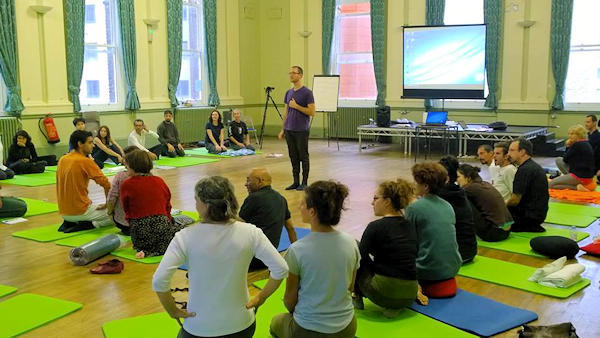
Do you work only
with autistic people or do you also have a studio open to everyone?
I think it would be a shame not to help everyone who can benefit from my treatment, because I love helping people suffering from all kinds of complaints.
Thanks to your years of experience with shiatsu and autism, you are now one of the greatest specialists on this subject. What are your conclusions about this subject and what follow-up do you intend to do to your work?
From my experience, testimonials and patients as well as those of families, there is no doubt that shiatsu is an effective therapy for autistic people. I’m currently working to gather scientific evidence on the effects of treatments on my patients. This is a joint research that I do with the service for autism with which I collaborate. I hope to be able to publish the results of this work in few months and, thanks to that, to succeed in attracting attention to shiatsu as a valuable therapy for autism. Potentially, this will launch new research in this direction. In addition, I constantly learn from my patients and keep me update with all the new research on autism.
What are your expectations? What would you like to see in the future?
As I’ve just said, I hope to draw attention to shiatsu to the community affected by autism (autistic people, their parents and caregivers) and make it a standard therapy. I would also like to see more practitioners interested in working with people with autism. Personally, I know very few who do it, by different approaches, in alternative medicine, and I find it’s a shame while autism is becoming less and less rare (according to statistical data) and there is a lot to learn about this topic and how to help people with autism.
Thanks Tal, thanks for this interesting interview. Looking forward to see you soon
- Bosnia – 5-6 April 25: 1st Balkan Shiatsu Summit in Sarajevo - 31 January 2025
- Austria – 19-21 Sept. 25: Shiatsu Summit in Vienna – chronic fatigue, burnout & depression - 19 December 2024
- Terésa Hadland interview: Shiatsu at core - 25 November 2024
- Book review: “Another self” by Cindy Engel - 30 September 2024
- Austria – 24-26 Oct. 25: Master Class in Vienna – Shiatsu and martial arts - 20 August 2024
- France – Lembrun Summer Intensive Course – July 6 to 12, 2025: Digestive System Disorders, Advanced Organ Anatomy, and Nutrition - 4 August 2024






